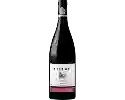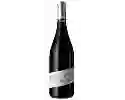
Domaine La MaurineLa Folie Claire Rosé
In the mouth this pink wine is a with a nice freshness.
This wine generally goes well with vegetarian, appetizers and snacks or lean fish.
Taste structure of the La Folie Claire Rosé from the Domaine La Maurine
Light | Bold | |
Dry | Sweet | |
Soft | Acidic |
In the mouth the La Folie Claire Rosé of Domaine La Maurine in the region of Languedoc-Roussillon is a with a nice freshness.
Food and wine pairings with La Folie Claire Rosé
Pairings that work perfectly with La Folie Claire Rosé
Original food and wine pairings with La Folie Claire Rosé
The La Folie Claire Rosé of Domaine La Maurine matches generally quite well with dishes of pasta, vegetarian or appetizers and snacks such as recipes of risotto of coquillettes with chorizo, magic cake cheese quiche or assortments of mini savoury tarts.
Details and technical informations about Domaine La Maurine's La Folie Claire Rosé.
Discover the grape variety: Rkatziteli
Originally from Georgia, it is the main grape variety in the production of white wines, particularly in eastern Georgia. It is also found in Canada, China, the United States, New Zealand, Australia and a large number of Eastern European countries. In France, it is practically unknown, which seems surprising given its qualities.
Informations about the Domaine La Maurine
The Domaine La Maurine is one of of the world's greatest estates. It offers 9 wines for sale in the of Saint-Chinian to come and discover on site or to buy online.
The wine region of Saint-Chinian
Saint-Chinian is an appellation in the Languedoc-roussillon">Languedoc-Roussillon wine region of southern France. It is located between Minervois and Faugeres, which produce similar styles of robust red wine from similar grapes and in a similar landscape. It is also adjacent to the Muscat de Saint-Jean-de-Minervois appellation, which produces Sweet white wines. Therefore, the diversity of the Languedoc region is well demonstrated in this small area.
The wine region of Languedoc-Roussillon
Languedoc (formerly Coteaux du Languedoc) is a key appellation used in the Languedoc-Roussillon wine region of southern France. It covers Dry table wines of all three colors (red, white and rosé) from the entire region, but leaves Sweet and Sparkling wines to other more specialized appellations. About 75% of all Languedoc wines are red, with the remaining 25% split roughly down the middle between whites and rosés. The appellation covers most of the Languedoc region and almost a third of all the vineyards in France.
The word of the wine: Primeur
Said of wines from the last vintage and, by extension, wines of the year, fruity and easy-drinking, put on sale on the third Thursday in November. The AOC regulations specify that a wine is said to be primeur if it is bottled before the spring, and nouveau if it is bottled before the following harvest. Beaujolais Nouveau is therefore a vin primeur.














